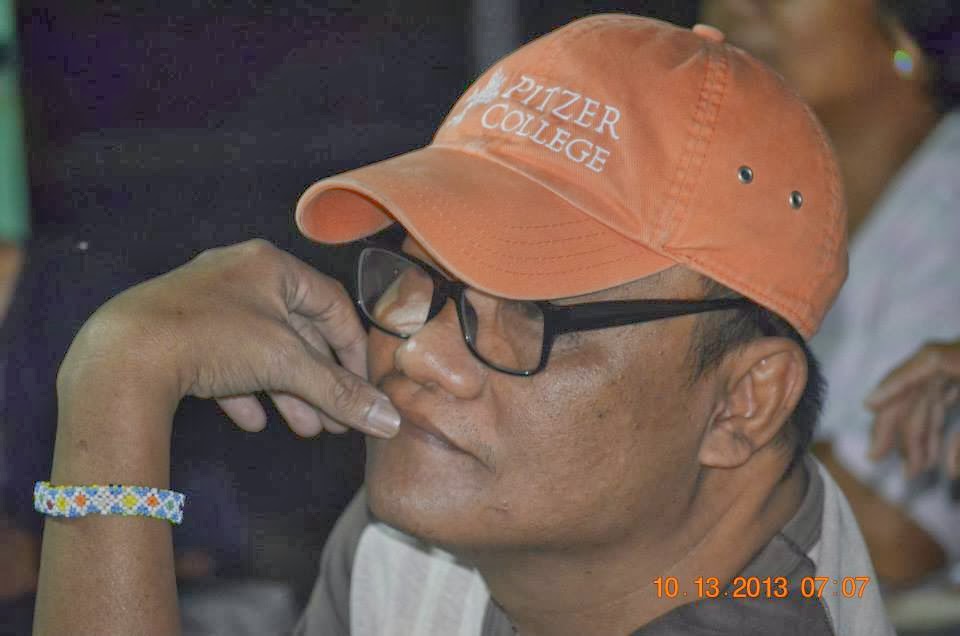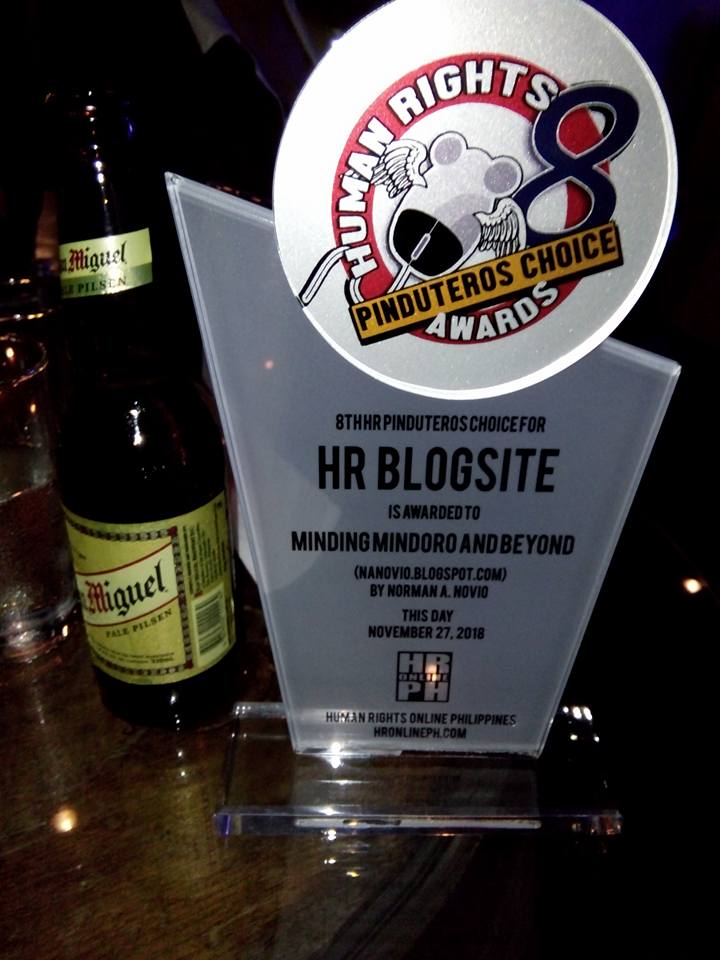
As I have a “sweet tooth”, so to speak, for budding and intelligent politicians, I pin high hopes on this talented young legislator from second district of Occidental Mindoro named Marian Haydee “Sugar” G. Villaroza who is now on her second term in office as provincial board member. The first time I met her was last September 16, 2009 in Calapan City, Oriental Mindoro while we are both attending the two-day Mindoro LGU-CSO Conference on Mining Moratorium being part of the participants coming from local government units (LGUs) and civil society organizations (CSOs) from all over the island. We were “seat mates” in the activity held at the Provincial Capitol Square of said city and I wrote a story about it via blog entry called "Of True Ants and Truants” two years ago.
I instantly recognized her then being a politician but I doubt if she could still remember me or if she personally know me by now. But things of sort don’t matter to me anymore.
The last time I heard Board Member Villaroza talking was last Monday (March 18) when being interviewed by anchor Alex Del Valle over DWDO-FM in the latter’s program called “Sa Totoo Lang”. The former was discussing about her side on why she retracted her previous nod to a Sangguniang Panlalawigan ordinance adopting the Occidental Mindoro Energy Development Plan crafted and finalized by the Energy Development Advisory Group or EDAG and was presented to the provincial board sometime this month. Said energy development plan is seen as a solution to problematic power situation in the province with regards to, “...below average service performance, inefficient system and neck-deep financial trouble.” Technical people from Occidental Mindoro Electric Cooperative (OMECO) were sent to the Philippine National Engineering Center (UP-NEC) for series of training and the main objective is to improve planning capabilities to enable the cooperative to keep up with the energy demand of our improving province. The creation of the EDAG was approved by Governor Josephine Y. Ramirez-Sato through Executive Order No. 11-11 s. of 2010. “EDAG is composed of the major players in the energy sector, representatives from the municipal and provincial government and non-government organization,” according to the Executive Summary of said development plan.
In the interview last Monday, Ms. Villaroza stated that she retracted her previous stand on that particular legislative action through a formal letter to the august body. The bottom line of such action, according to her, is the existing and still valid Energy Conversion Agreement (ECA) entered into by and between OMECO and Island Power Corporation or IPC. She admitted that she consulted three prominent personalities on the case and those names she mentioned are key officials and supporters of the IPC and known public officials at that. While I believe that she has all the right to talk to those people, she also has the full responsibility to equally ask the opinion of the OMECO Board, the EC management and the Energy Regulatory Commission (ERC) on the status of the ECA even after the presentation to balance her opinion on the matter.
Villaroza further stressed that prior to the tackling of the issue to the Sangguniang Panlalawigan, she said in that same interview that she is not aware of the existing ECA between OMECO and IPC. With all respect to the lady lawmaker, this I do not buy.
As early as the 2009 Annual General Membership Assembly of OMECO, there approved a Resolution to cause the rescission of its ECA with IPC because of the latter’s inability to perform its obligation in said contract.
As expected, the OMECO Board resorted to legal action. Atty. Ditas A. Lerios-Amboy, legal counsel for OMECO, wrote a Notice of Termination in September 2009 and she emphasized, “In a letter dated April 2, 2009, the ERC has ruled that the ECA has effectively been superseded by the Power Purchased Agreement entered into by and between NPC and IPC in June 2000 because when the ERC approved the PPA wherein IPC undertook to supply electricity to NPC for the latter to sell to OMECO, the agreement between OMECO and IPC in the ECA wherein IPC will supply electricity directly to OMECO was rendered ineffectual. The ERC explained further that in both the PPA and ECA. IPC undertook to sell the same generating capacity of its plant which is 7 MW. Both agreements cannot subsist at the same time or independently of each other since IPC can generate and supply only from the same 7 MW capacity. Finally, the ERC has directed OMECO to execute and award a new Power Supply Agreement (PSA) in favor of a New Power Provider (NPP)…..
In view of the foregoing continued inability of IPC to perform its obligations in the ECA and pursuant to the ruling of ERC, we are serving this NOTICE to formally inform IPC of OMECO's intent to RESCIND its ECA with IPC to take effect within 15 days from receipt hereof.” At present, as far as the OMECO is concerned, the ECA is already terminated that is why they are looking for the new Independent Power Producer (IPP) consistent with their position and rightly so, we do not have to wait until kingdom come to solve the problem brought about by this one-sided agreement.
The present OMECO Management Board, in the name of member-consumers, opted to go on with the reform, push the energy development plan as an official roadmap to development with utmost urgency and face the legal consequences later.
To synthesize, allow me to quote this gem from the Catholic Catechism for our discernment: “Authority is exercised legitimately only when it seeks the common good of the group concerned and if it employs morally licit means to attain it. If rulers were to enact unjust laws or make measures contrary to the moral order, such arrangements would not be binding in conscience. In such a case, authority breaks down completely and results in shameful abuse.” (CCC, no. 1903)
We at the Serve OMECO Movement (SOM) believes that the time to implement the energy plan is NOW but Board Member Villaroza thinks otherwise. No doubt, Sugar is free to stand by her own principle and even beyond….
-------
(Photo: From Bokal Sugar Villaroza's Facebook Account)







